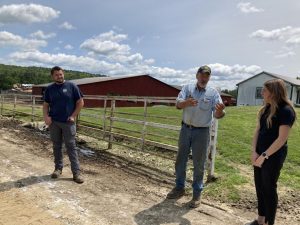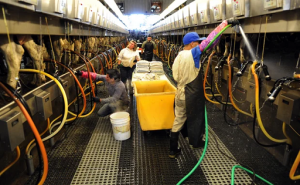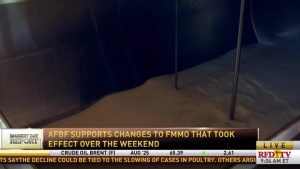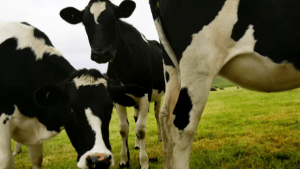
Dwyer was provided with a report relating to more than 300 dairy farms by name, association counsel Jonathan Sallet of Washington wrote on Aug. 5.
Sallet wrote that the report contained the amounts of bids that farmers placed and their production numbers for multiple years. It allegedly listed competitively sensitive prices that specific cooperatives charged to specific customers, and details of contracts.
“Defendants need additional discovery to determine what highly confidential information Dr. Dwyer obtained and what he has done with it,” Sallet wrote.
Lead plaintiff First Impressions Salon, a Vermont business, filed an antitrust suit against the association in 2013.
First Impressions claims its herd retirement program raised milk prices for five years, and seeks damages from three cooperatives, Land O’ Lakes, Agri-Mark, and Dairy Farmers of America.
Damages are also sought from Cooperatives Working Together, a group of 33 cooperatives supporting the program.
District Judge Nancy Rosenstengel certified two classes in 2017, one for cheese buyers and one for butter buyers.
Trial is set to start this Oct. 1.
On May 3, Lamb submitted a report on damages through his firm, Monument Economics Group.
Land O’ Lakes moved to exclude it on May 31, claiming he improperly recalculated rates that regulators set.
On July 23, defendants received an anonymous letter stating Dwyer wrote it.
The author wrote that Dwyer wasn’t an employee of Monument and didn’t sign the confidentiality order.
Next day, Sallet moved for a discovery order on behalf of the producers.
Sallet wrote that at a deposition, Lamb didn’t identify Dwyer or any other firm as persons who assisted him in any way.
On July 31, class counsel Charles Barrett of Tennessee responded that defendants should have thrown the letter in the trash.
Barrett wrote that in March, Dwyer executed a contract with a confidentiality clause.
He wrote that Lamb considers Dwyer a member of the staff and Monument lists him as an employee on billing statements. He also wrote that the report consisted of 205 paragraphs, and Dwyer contributed material that appeared in 24 paragraphs.
“Any language Dwyer suggested was carefully reviewed and approved by Lamb and other Monument staff working under his direction,” Barrett wrote.
He wrote that Monument billed plaintiffs for 9,303 hours through May 3, and that Dwyer expended 62.6 of those hours.
“Lamb answered truthfully at his deposition, because he understood the questions to be asking whether he had consulted with economists not affiliated with Monument, and he considers Dwyer to be part of Monument’s staff,” Barrett wrote.
“When asked about staff at Monument who assisted him, he recalled at the time the names of three, but not all persons, including Dwyer.”
In reply, Sallet wrote that it was implausible that Lamb wouldn’t recall hiring Dwyer as a special consultant.
He wrote that when defendants filed the motion, they didn’t know whether the letter was truthful.
“But we now know that there is truth to the letter,” Sallet wrote.
He wrote that Dwyer’s contract addressed confidential information of Monument, not confidential information of parties in litigation.
“It is unclear what work Dr. Dwyer may have done beyond the 24 paragraphs of direct input,” he wrote.
He wrote that defendants don’t know the paragraphs on which he provided input, and that Lamb implied in a declaration that Dwyer’s language may have been included wholesale.
“Dr. Dwyer is an expert in his own right and he was not disclosed as assisting Dr. Lamb when Dr. Lamb was asked directly about it in his deposition,” Sallet wrote.
He wrote that Dwyer apparently still hadn’t signed the protective order.
“Dr. Lamb is plaintiff’s main witness in this case affecting dairy farmers across the United States, and the integrity of his opinions is central to this case,” he wrote.

























